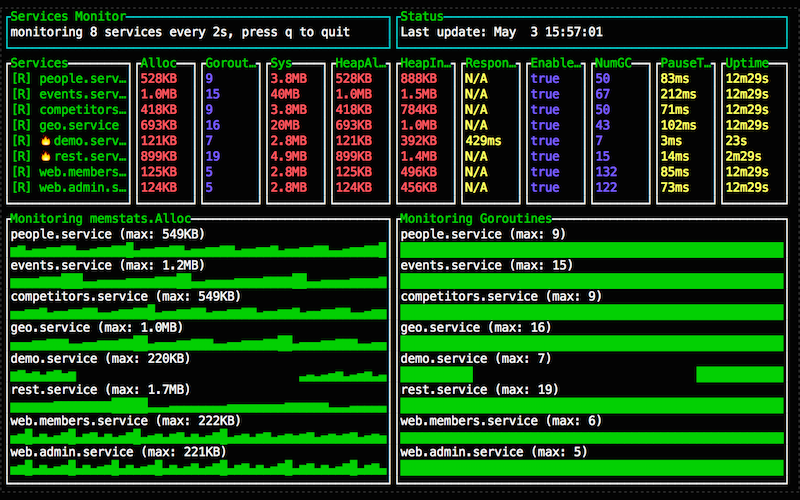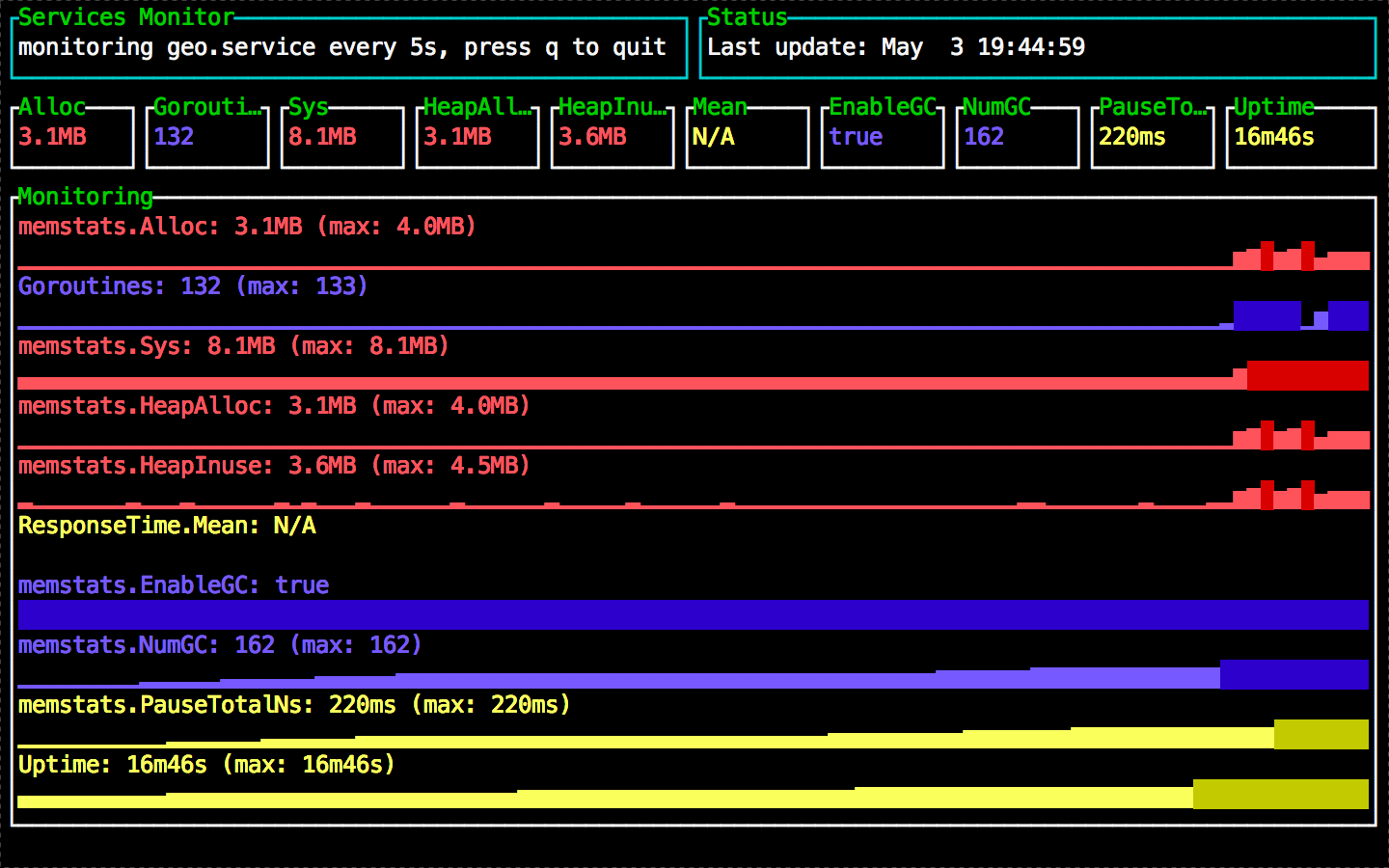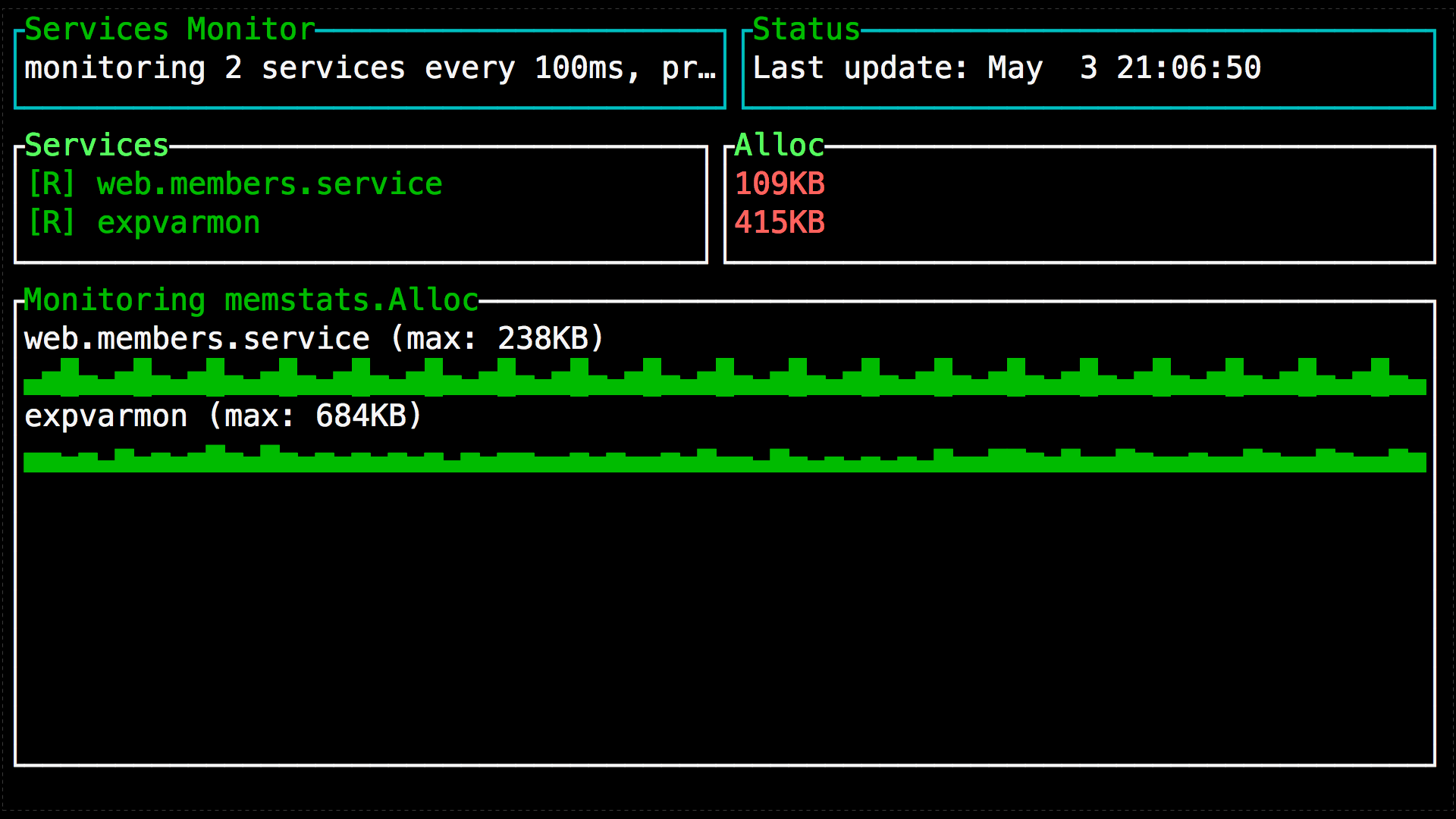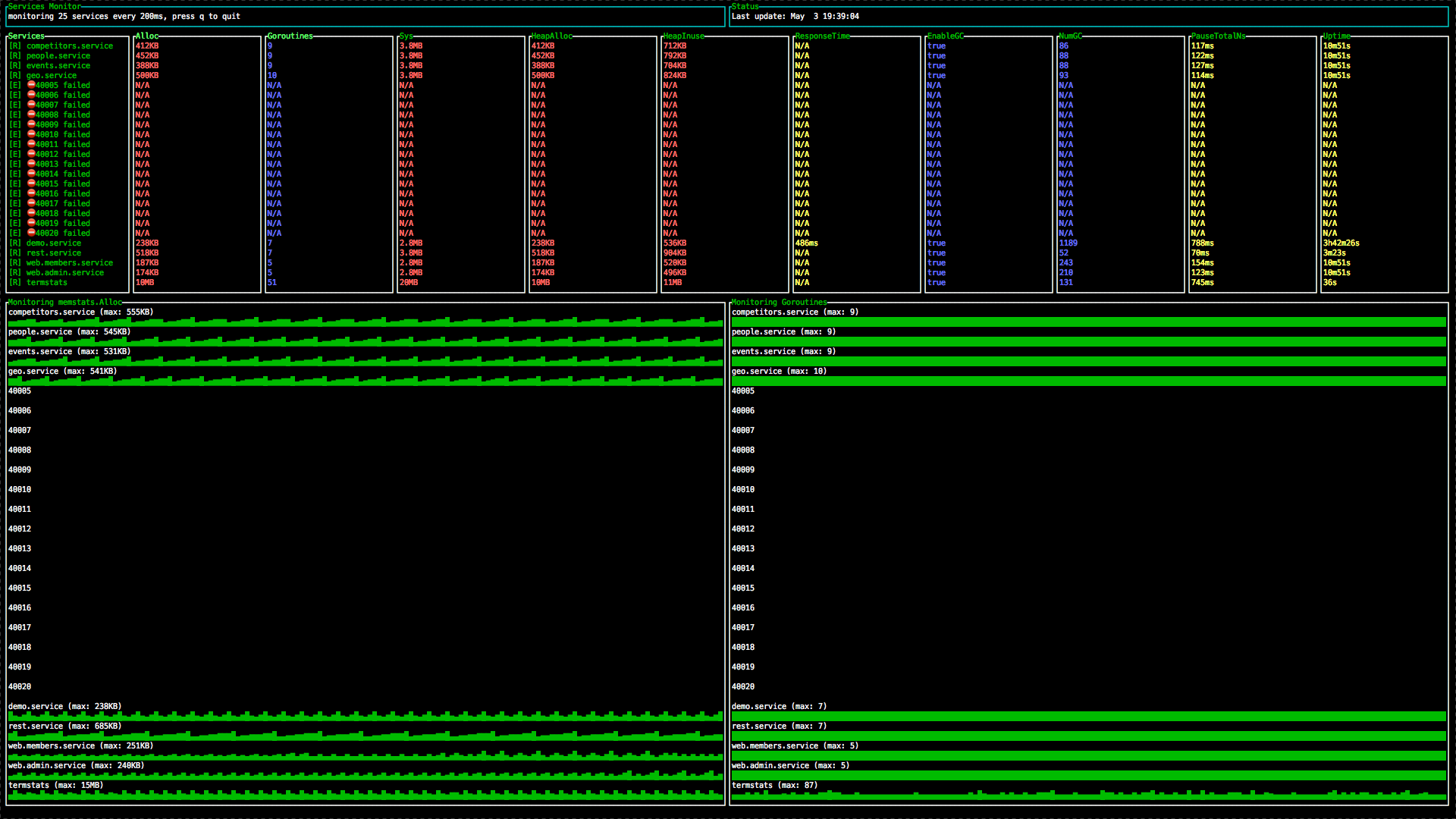Print errors to stderr. Check interval flag for valid value |
||
|---|---|---|
| demo | ||
| .gitignore | ||
| README.md | ||
| data.go | ||
| expvars.go | ||
| expvars.json | ||
| expvars_advanced.json | ||
| expvars_test.go | ||
| main.go | ||
| self.go | ||
| service.go | ||
| stack.go | ||
| stack_test.go | ||
| ui.go | ||
| ui_dummy.go | ||
| ui_multi.go | ||
| ui_single.go | ||
| utils.go | ||
| utils_test.go | ||
| var.go | ||
| var_test.go | ||
README.md
ExpvarMon
TermUI based Go apps monitor using expvars variables (/debug/vars). Quickest way to monitor your Go app.
Introduction
Go apps console monitoring tool. Minimal configuration efforts. Quick and easy monitoring solution for one or multiple services.
Features
- Single- and multi-apps mode
- Local and remote apps support
- Arbitrary number of apps and vars to monitor (from 1 to 30+, depends on size of your terminal)
- Track restarted/failed apps
- Show maximum value
- Supports: Integer, float, duration, memory, string, bool variables
- Sparkline charts for integer, duration and memory data
- Auto-resize on font-size change or window resize
- Uses amazing TermUI library by gizak
Demo
Multiple apps mode

Single app mode

You can monitor arbitrary number of services and variables:
Purpose
This app targets debug/develop sessions when you need an instant way to monitor you app(s). It's not intended to monitor apps in production. Also it doesn't use any storage engines and doesn't send notifications.
Install
Just run go get:
go get github.com/divan/expvarmon
Usage
Prepare your app
First, you have to add expvars support into your Go program. It's as simple as:
import _ "expvar"
and note the port your app is listening on. If it's not, just add two lines:
import "net/http"
...
http.ListenAndServe(":1234", nil)
and expvar will add handler for "localhost:1234/debug/vars" to your app.
By default, expvars adds two variables: memstats and cmdline. It's enough to monitor memory and garbage collector status in your app.
Run expvarmon
Just run expvarmon with -ports="1234" flag:
expvarmon -ports="1234"
That's it.
More examples:
./expvarmon -ports="80"
./expvarmon -ports="23000-23010,80" -i=1m
./expvarmon -ports="80,remoteapp:80" -vars="mem:memstats.Alloc,duration:Response.Mean,Counter"
./expvarmon -ports="1234-1236" -vars="Goroutines" -self
Advanced usage
If you need to monitor more (or less) vars, you can specify them with -vars command line flag.
$ expvarmon -help
Usage of ./expvarmon:
-dummy=false: Use dummy (console) output
-i=5s: Polling interval
-ports="": Ports for accessing services expvars (start-end,port2,port3)
-self=false: Monitor itself
-vars="mem:memstats.Alloc,mem:memstats.Sys,mem:memstats.HeapAlloc,mem:memstats.HeapInuse,memstats.EnableGC,memstats.NumGC,duration:memstats.PauseTotalNs": Vars to monitor (comma-separated)
Examples:
./expvarmon -ports="80"
./expvarmon -ports="23000-23010,80" -i=1m
./expvarmon -ports="80,remoteapp:80" -vars="mem:memstats.Alloc,duration:Response.Mean,Counter"
./expvarmon -ports="1234-1236" -vars="Goroutines" -self
For more details and docs, see README: http://github.com/divan/expvarmon
So, yes, you can specify multiple ports, using '-' for ranges, and specify host(s) for remote apps.
You can also monitor expvarmon itself, using -self flag.
Vars
Expvarmon doesn't restrict you to monitor only memstats. You can publish your own counters and variables using expvar.Publish() method or using expvar wrappers libraries. Just pass your variables names as they appear in JSON to -var command line flag.
Notation is dot-separated, for example: memstats.Alloc for .MemStats.Alloc field. Quick link to runtime.MemStats documentation: http://golang.org/pkg/runtime/#MemStats
Expvar allows to export only basic types - structs, ints, floats, bools and strings. Ints are used for sparklines, and displayed as is. But you can specify modifier to make sure it will be rendered properly.
Vars are specified as a comma-separated list of var identifiers with (optional) modifiers.
| Modifier | Description |
|---|---|
| mem: | renders int64 as memory string (KB, MB, etc) |
| duration: | renders int64 as time.Duration (1s, 2ms, 12h23h) |
| str: | doesn't display sparklines chart for this value, just display as string |
TODO
- ports auto-discovery for given hostname
- more tests coverage
- better usage of color highlighting (for max values or failed apps), after relevant patches will be merged to TermUI


